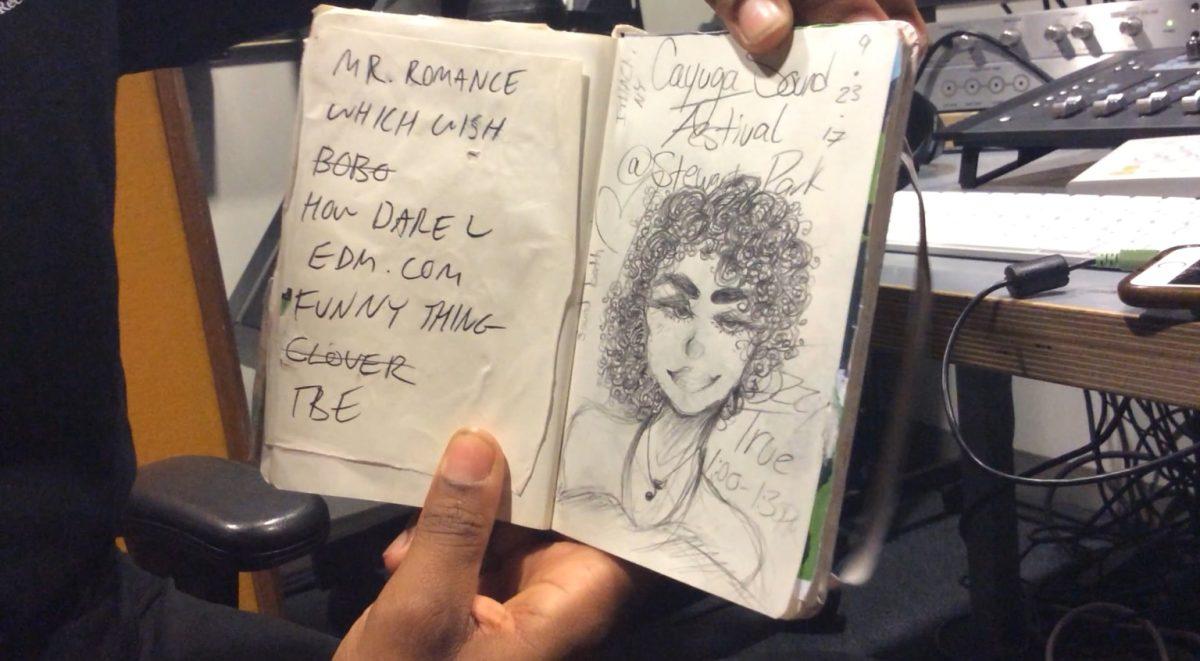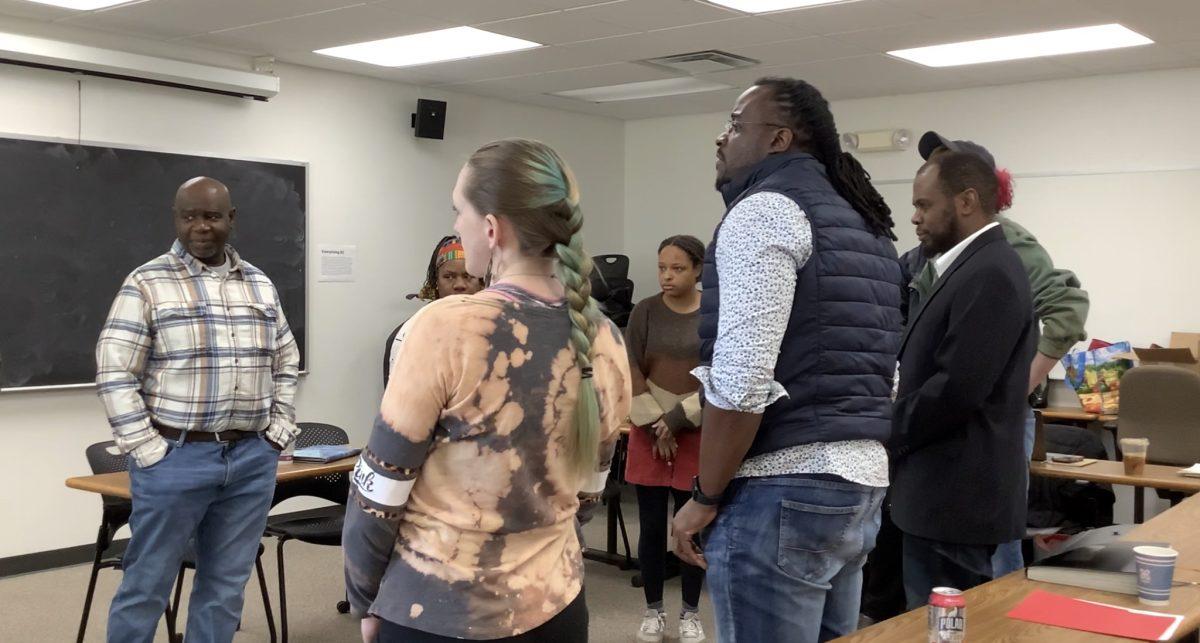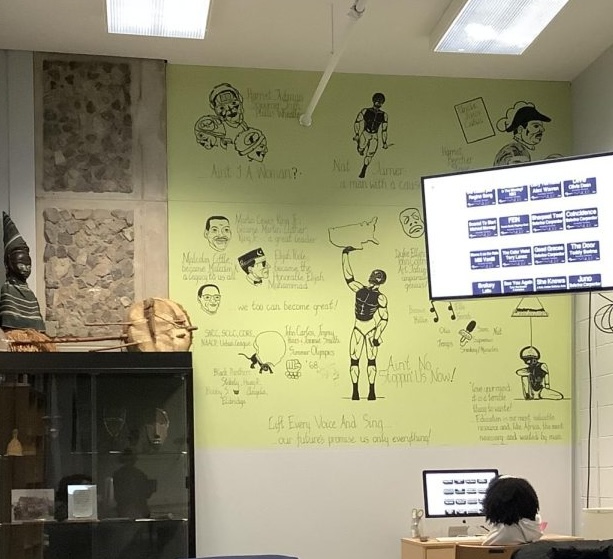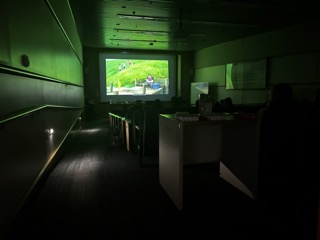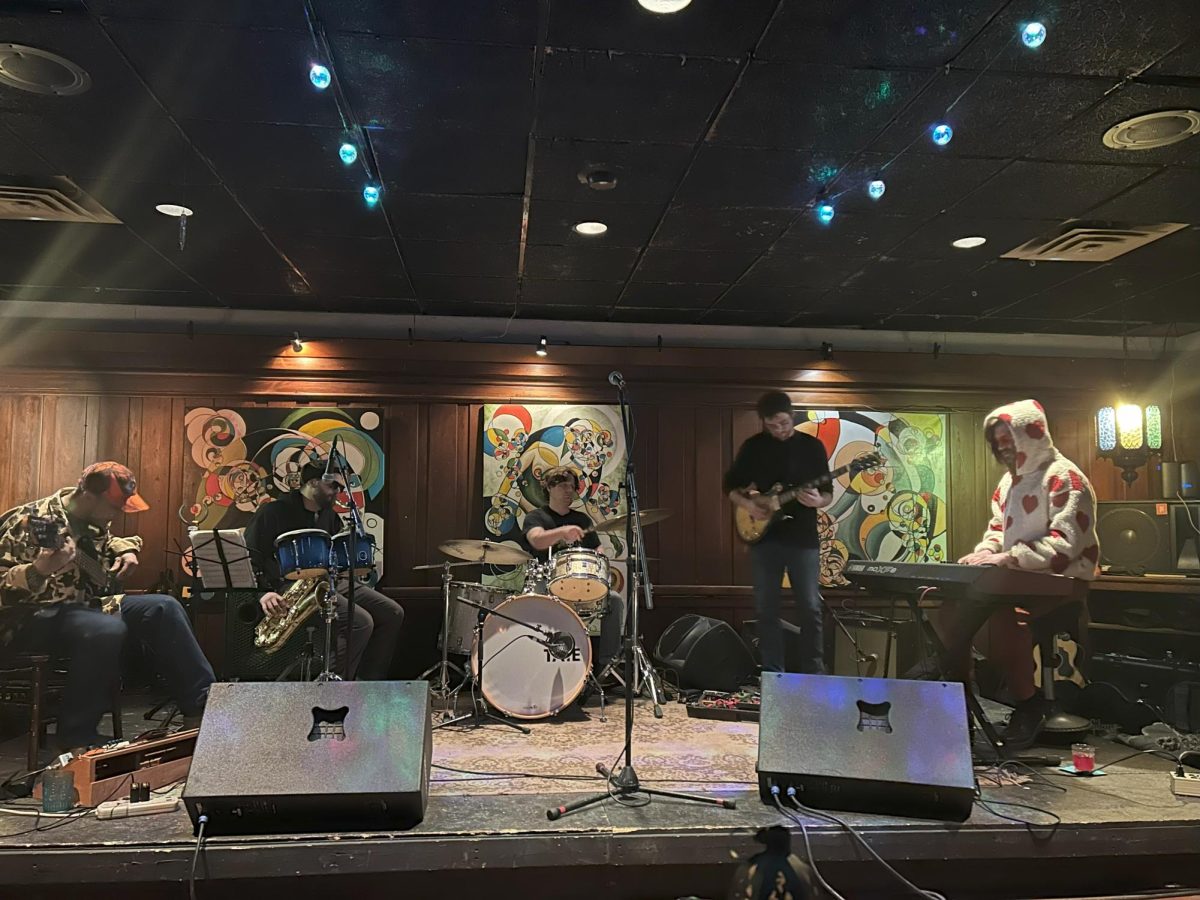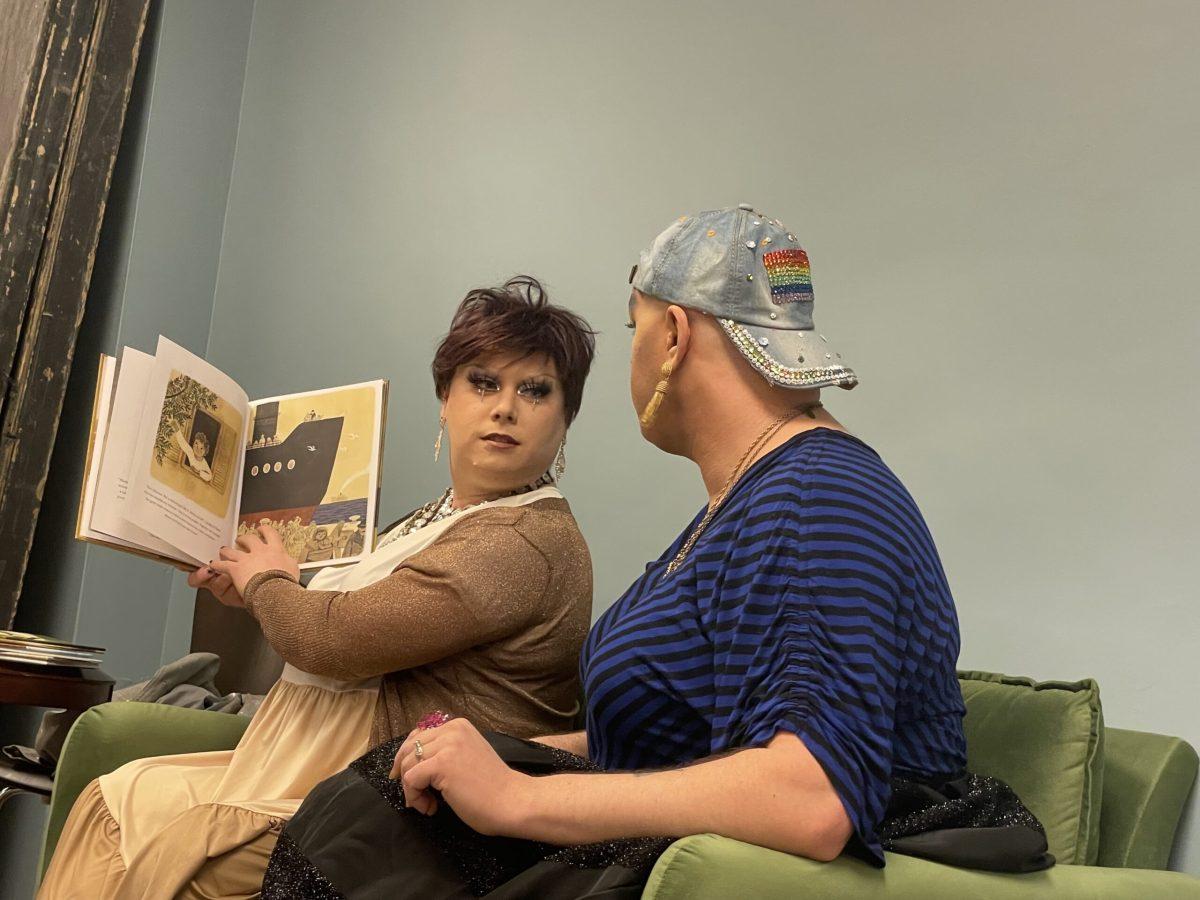Kyra Skye flips through a battered palm-sized notebook with a smile on her face. It’s traveled across the country with her.
This past summer, Skye went on a month-long tour as the bassist of the band, Izzy True. She used her journal to document each night of her musical journey, gluing in set lists and concert bills, making doodles and jotting down lyrics.
“I want to document it all. I don’t want to forget anything,” Skye said. “I know I’m going to keep doing amazing things and I want to document the journey.”
Skye became part of Izzy True after she introduced herself to the band’s drummer, Angela Devivo, at an Ithaca Underground show last year.
Izzy True played in Ithaca’s first Cayuga Sound Festival, curated by multi-platinum selling band, X Ambassadors. Some other acts Izzy True played alongside included The Roots, Margaret Glaspy, Jukebox the Ghost and Sammus.
“That is just still mind boggling. I got to meet so many artists that I look up to,” Skye said.
Solo Work
Skye began writing, recording and producing her solo album, “Summer Nights”when she returned from tour. She taught herself how to use the digital audio workspace, or DAW, Logic, to record, mix and master the songs on it. She now performs her own music in and around Ithaca and her hometown of Nyack, New York.
Skye said she hadn’t previously had much experience with music production, as she didn’t realize she could pursue it until recently. As a woman of color, there weren’t major producers for her to look up to, who she felt represented her.
“I could name so many white guys: Zedd, Calvin Harris, Disclosure. They’re all extremely talented and I really look up to them. Zedd is one of my favorite DJs and electronic musicians of all time, but he doesn’t look anything like me,” she said.
Skye became interested in the DAW, GarageBand after a high school music teacher introduced it to her, but came to Ithaca College as a writing major. She’s now a sophomore spending her first semester as a sound recording technology student at Ithaca College.
She said when she realized she could not only write, but produce her own work, she took the opportunity, spending the summer in her basement, perfecting her tracks.
“I really wanted to have something out there. When I learned it was possible, I was like, ‘Why not?’” she said.
Skye’s academic adviser and professor, Michael Caporizzo, said her time studying sound recording technology will help her hone her natural talent.
“In the years that she studies here, we’ll be able to refine that talent and improve her technical skills, so she’ll be able to produce an even finer product,” Caprizzo said. “When I listen to her work, I’m really into what she does with vocal harmonies… It’s hard to teach that kind of creativity.”
Women in Production
As a woman of color pursuing music production, Skye is in the minority. Though a growing number of women are reaching success in the field, they are outnumbered by white men.
Caporizzo said the sound recording technology program has a total of sixteen female first-year students. He said up until now, the program had only graduated two women.
Out in the field, the numbers are even more skewed. An article in The Atlantic by Joy Lanzedorfer says the Audio Engineering Society reports just how little of the music we hear is women-produced.
“In 2000, the Audio Engineering Society’s (AES) women in audio committee—which is now, tellingly, defunct—loosely estimated that 5 percent of those working in the field were female,” Lanzedorfer wrote.
The masculine culture of the field is internalized.
“Even the language around live sound engineering is, like, ‘the sound guy,’ ‘the live-sound dude.’ It’s so male-centric because it’s just normalized that way,” Skye said.

The Women’s Audio Mission, an organization that works to train women in music production, estimates that the ratio of women to men in audio recording is even less.
Women’s Audio Mission addresses two critical issues:
- Less than 5% of the people creating the sounds, music and media in the daily soundtrack of our lives are women.
- The alarming 70% decline in women/girls enrolling in college STEM (Science, Technology, Engineering, & Math) programs since the year 2000.
However, Skye says she refuses to let these inequalities scare her out of doing what she loves.
“I think even just being me, being here is going to change that,” Skye said. “I hope by doing what I love, it will help others do what they love too.”

